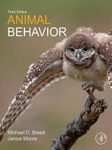About this book
Microbiomes and Plant Health: Panoply and Their Applications includes the most recent advances in phytobiome research. The book emphasizes the use of modern molecular tools such as smart delivery systems for microbial inoculation, next-generation sequencing, and genome mapping. Chapters discuss a variety of applications and examples, including the sugarcane microbiome, rhizoengineering, nutrient recycling, sustainable agricultural practices and bio-potential of herbal medicinal plants. Written by a range of experts with real-world practical insights, this title is sure to be an essential read for plant and soil microbiologists, phytopathologists, agronomists, and researchers interested in sustainable forestry and agriculture practices.
Contents
PART ONE: Introduction Part
1. Emerging insights on the potential role of plant-associatedmicroorganisms in sustainable agriculture
2. Application of cereal and vegetable endophytes in plant health management
3. Plant virome: current understanding, mechanisms, and role in phytobiome
PART TWO: Methodological Sections
4. Modern biotechnological tools: an opportunity to discover complex phytobiomes of horticulture crops
5. Genome mapping tools: current research and future prospects
PART THREE: Scientific chapters
6. Mycorrhizal fungi and its importance in plant health amelioration
7. Sugarcane microbiome: role in sustainable production
8. Preface of phytobiome in nutrient recycling, biogeochemistry, and spatial dynamics
9. Maize microbiome: current insights for the sustainable agriculture
PART FOUR: General Sections
10. Phytobiomes and bioremediation
11. Modern era of microbial biotechnology: opportunities and future prospects
12. Phyllosphere microbiome: modern prospectus and application
13. Microbial linkages in the heavy metal remediation
14. Actinobacteria interventions in plant and environment fitness
15. Microbiomes in some cereal crops: diversity and their role in geochemical nutrient recycling
Customer Reviews
Biography
Manoj Solanki is currently working as a visiting scientist in the Volcani Center, Agricultural Research Organization, Israel. He obtained his Master's degree in Microbiology from Barkatullah University in 2006 and a PhD degree in Microbiology from Rani Durgawati University, India in 2013. He was also awarded a visiting scientist fellowship from the Guangxi Academy of Agriculture Sciences, China in 2013-2015. During his PhD, he was awarded a Senior Research Fellowship from the Indian Council of Agriculture Research (ICAR), India. He also worked as a Research Associate in the International Crops Research Institute for the Semi-Arid Tropics (ICRISAT), India in a Department of Biotechnology funded project. He has been engaged in various research activities on plant-microbe interaction, soil microbiology, plant disease management, enzymology, and published many book chapters and various research papers in journals of international repute.
Dr Prem Lal Kashyap is a scientist (Plant Pathology) at the ICAR-Indian Institute of Wheat and Barley Research, India. His research interest includes comparative genomics and population genetics of plant pathogens, microbial diversity, characterization and conservation, plant-microbe interactions, and microbial nanotechnology. Dr Kashyap has more than seventy publications to his credit, including research papers and book chapters, and edited or authored several books. Dr Kashyap has 8 years of research experience, and he has been awarded the NAAS Young Scientist Award (Plant Protection) (2015-16) and the Dr Basant Ram Vashisht Youth Vaigyanic Puruskar-2014 (2015) by the Uttar Pradesh Academy of Agricultural Sciences (UPAAS), Uttar Pradesh, India.
Dr Rizwan Ali Ansari is currently working as an Assistant Professor at Aligarh Muslim University, Aligarh, India. His research interests centre on the development of formulation through organic and bio-organic interactions so that sustainable agriculture could be intensified. He has received prestigious awards from various scientific societies, such as the Society for Plant Protection Sciences (SPSS) and the Nematological Society of India (NSI) for his outstanding contribution in the field of Plant Pathology and Nematology. He has published many research articles, review articles, chapters, and books on organic matters, mycorrhizal fungi, plant growth-promoting bacteria, bio-inoculants being utilized in the sustainable management of plant pathogens.
Dr Baby Kumari obtained her Master's degree in Biotechnology from the University of Rajasthan and a PhD degree in Biotechnology from Vinoba Bhave University (2017), Jharkhand, in collaboration with the Bhabha Atomic Research Centre, Mumbai, India. She has worked at the Bhabha Atomic Research Centre, Mumbai, Maharashtra, April 2013-April 2014, in Nuclear Agriculture and Plant Biotechnology Division. She also worked there in the Radiation and Health division. Dr Kumari has a great interest in plant microbiome interactions, especially in medicinal plants.


































